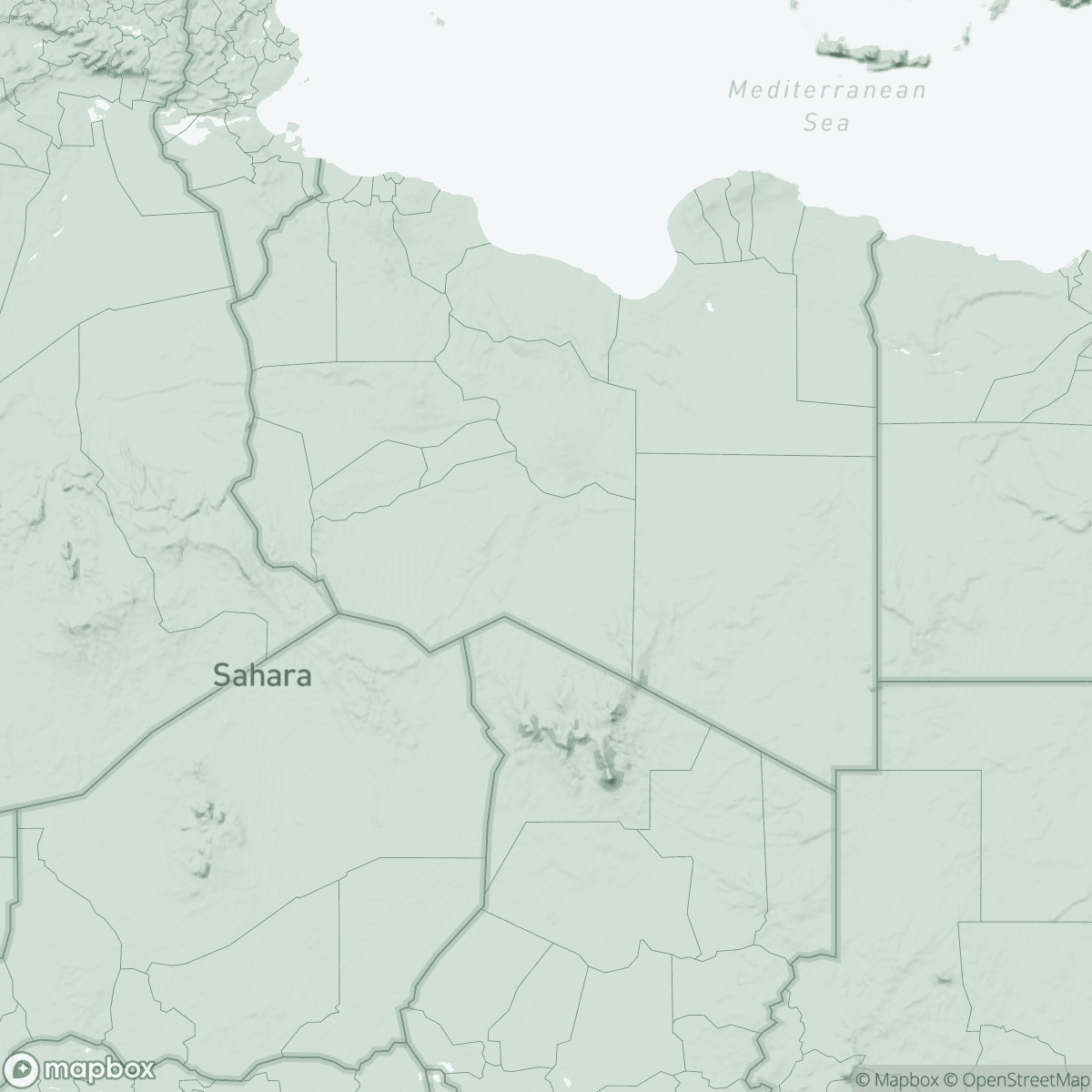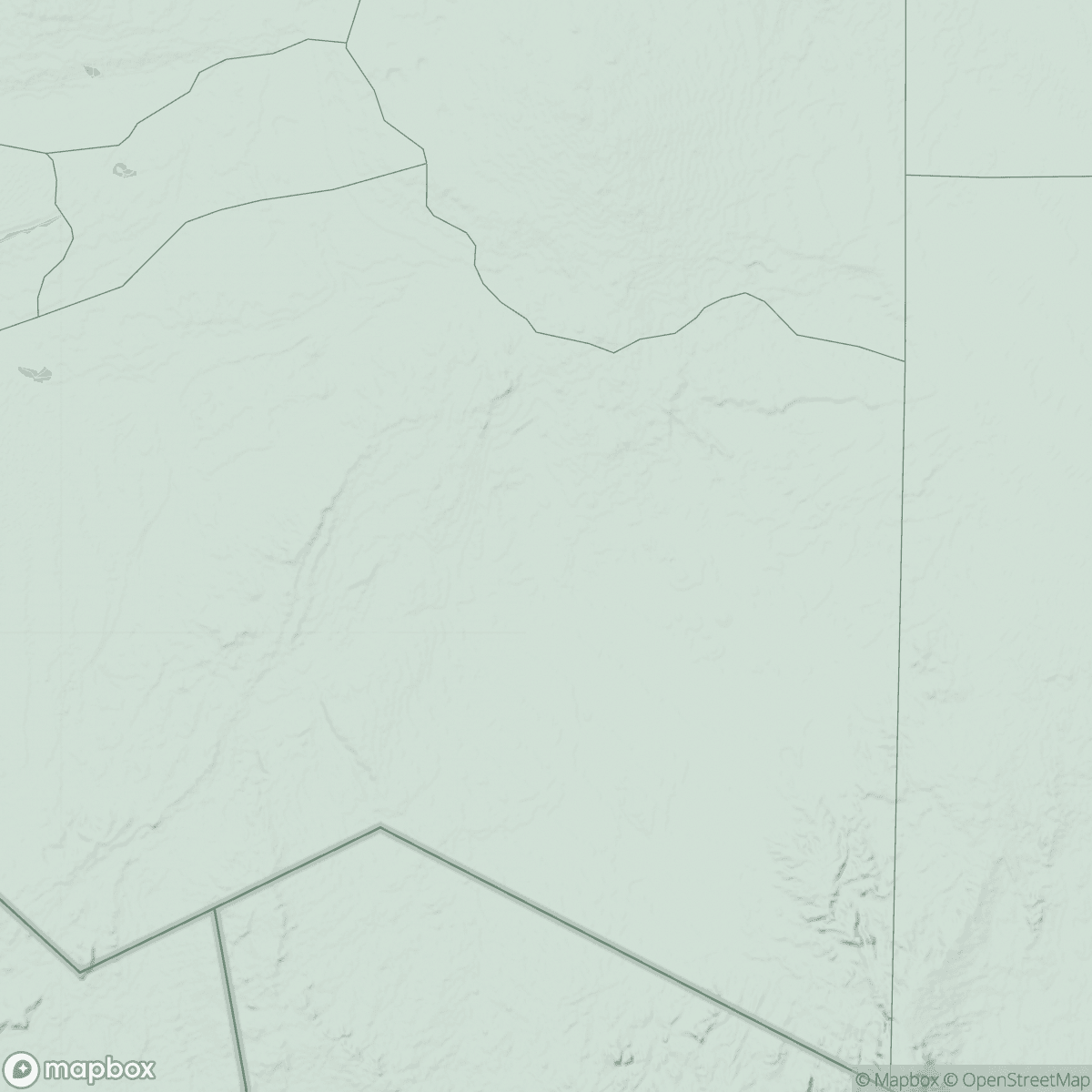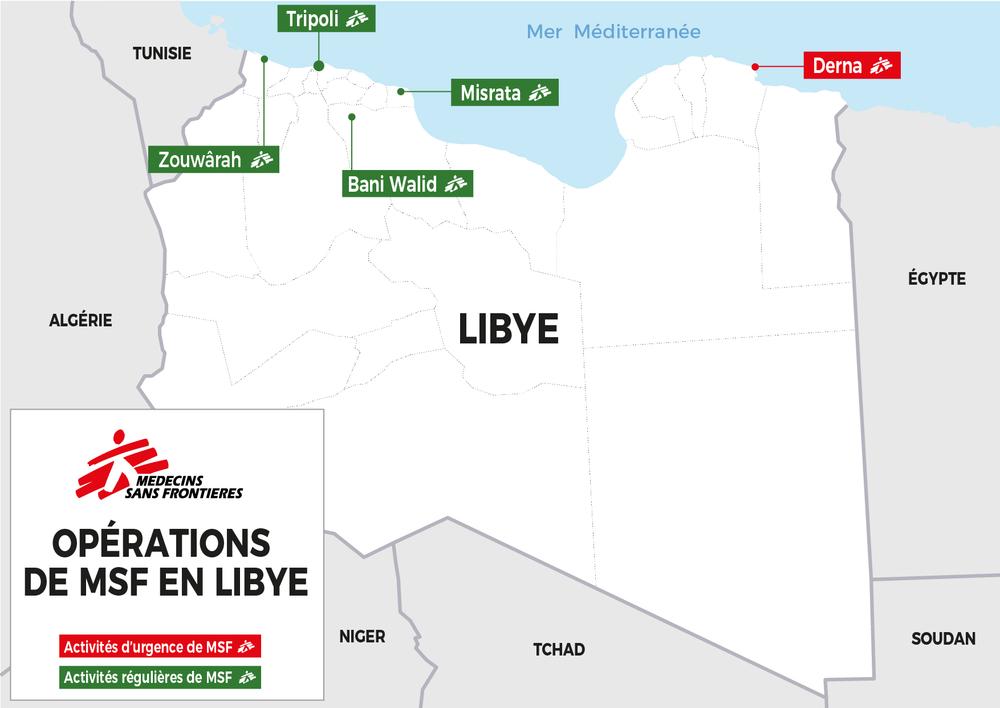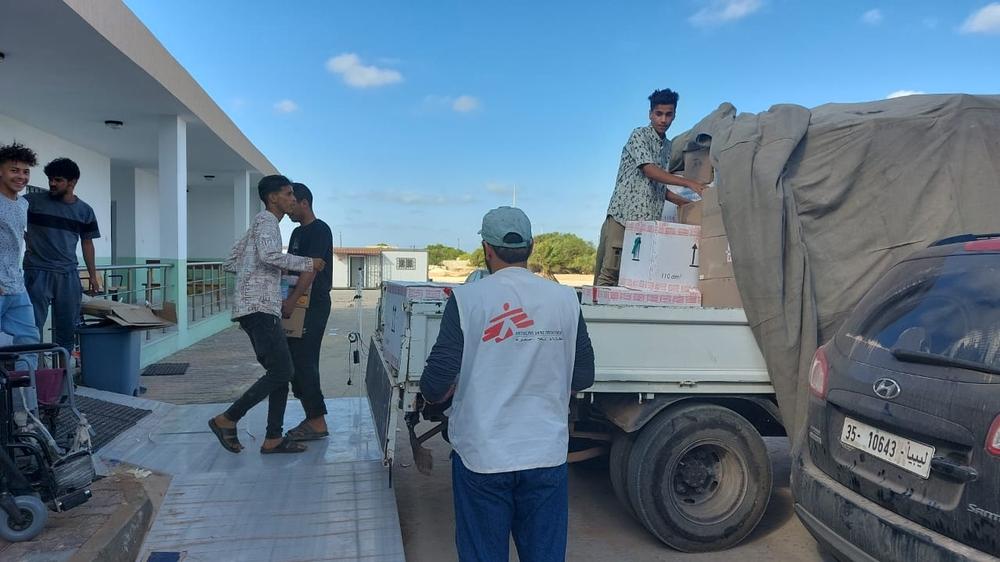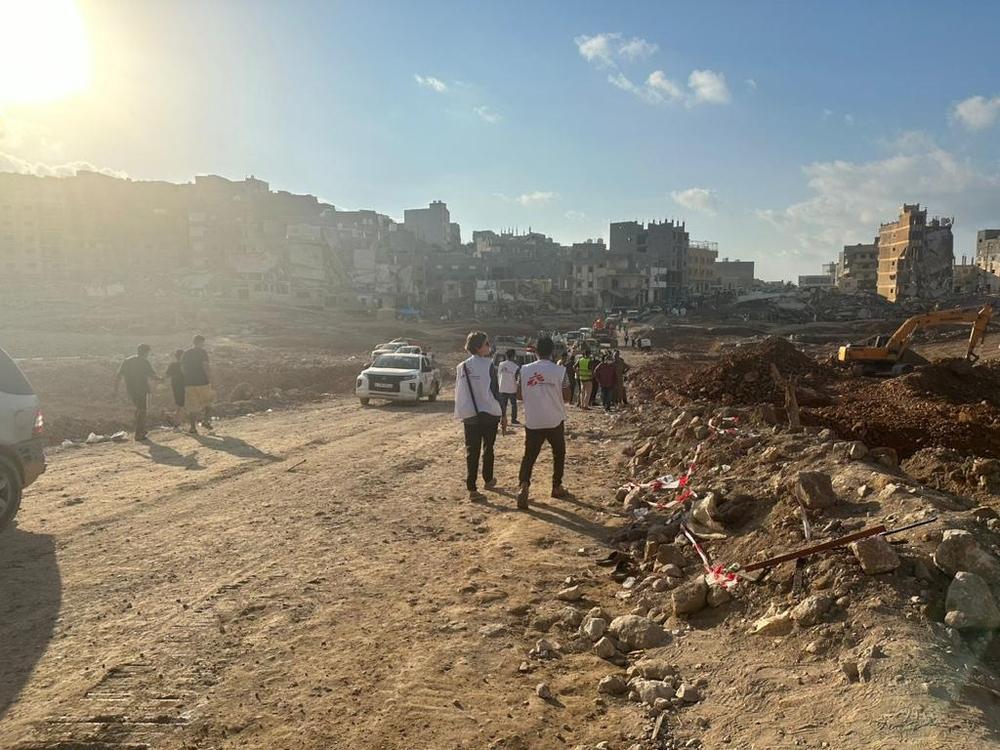
Flooding in Libya: MSF mobilised in response to the immense needs
In 1 click, help us spread this information :
The number of victims has now risen to over 5,000, with thousands still missing," explains Claire Nicolet, MSF's deputy head of emergencies. "The more time passes, the lower the probability of finding survivors".
As soon as it arrived, the MSF team donated medical kits and 400 body bags for the dead. It is now continuing to assess hospitals and health centres, as well as medical needs, in order to launch activities as quickly as possible. Some health facilities have been destroyed or are no longer functional in Derna. "In the western part of the city, the part most affected, we visited three health centres. One is closed because all the medical staff have died, while the other two are running with volunteers from Tripoli, but they need support," explains Manoëlle Carton, medical coordinator in Derna. "The Ministry of Health is gradually trying to distribute the various players who want to intervene and to identify the needs.
There are a lot of needs, but also a lot of support. Volunteers have arrived in Tripoli and international doctors are arriving and distributing themselves among the various hospitals".
We passed the most acute phase of the emergency. When we arrived, there were no bodies left in the streets. Now it's a bit of an aftermath", continues Manoëlle Carton.
The mental health needs on the ground are immense, and the city's inhabitants are unable to comprehend the scale of the disaster. Providing psychological support is one of MSF's priorities.
Chronic disease management has been identified as another priority, due to the destruction of health infrastructures.
There are no more stocks of medicines," reports Claire Nicolet. "So we're going to try and set up monitoring of chronic illnesses or make donations to meet this need".
